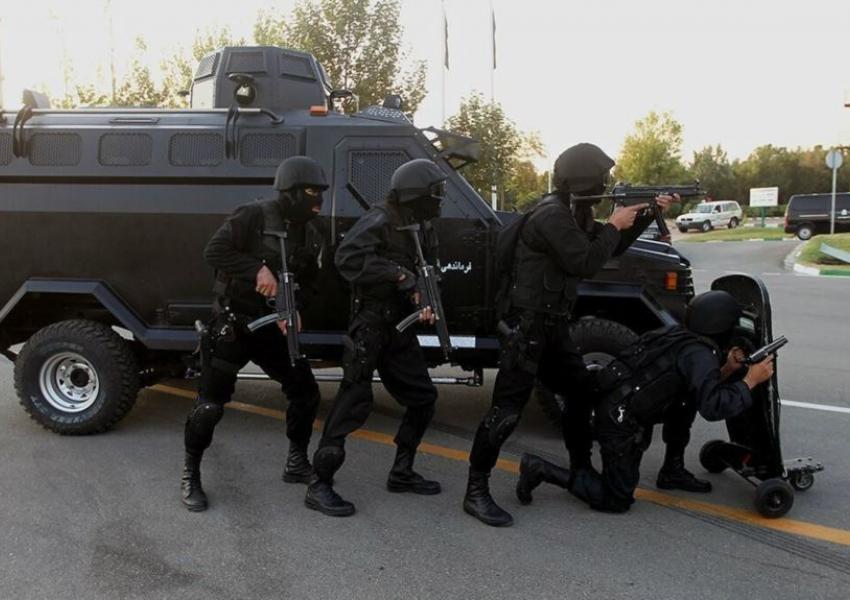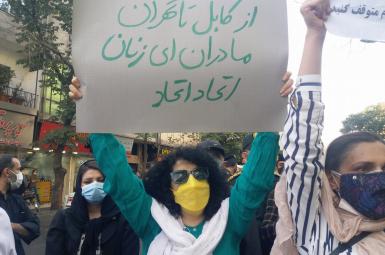
Whose Security? With ‘Neighborhood Strike Squads,’ IRGC Anticipates Fresh Protests
Morad Vaisi
Iran analyst, well-known journalist and Editor at Iran International
Iran’s Revolutionary Guards (IRGC) are planning to set up neighborhood strike squads in Tehran. The scheme was first revealed in 2017 as a nationwide initiative, so the squads are likely to be launched all over the country rather than in the capital alone.
Brigadier General Mohammad Yazdi, the commander of the IRGC’s Mohammad Rasoulallah Headquarters in Tehran, has said these strike squads will be based at Basij militia bases in every neighborhood as part of a localized security scheme.
Yazdi has said that the squads will confront handbag snatchers and other criminals. Given this is usually a police task, and considering the unstable security situation in the Islamic Republic, the squads look like part of IRGC plans to prevent, at their onset locally, the recurrence of anti-government protests in major cities.
In November 2019, when the most widespread protests in the history of the Islamic Republic took place across the country, the government acknowledged unrest in 28 provinces out of 31 while independent investigative reports found protests in 30. It was the first time the Islamic Republic ran out of security forces to suppress dissent.
Before November 2019, military and security organizations such as the IRGC and Special Forces drafted in extra forces from other provinces. However, the nationwide protests last November revealed a security loophole, leading the army to be deployed for the first time.
While the regime does not trust the conventional army in suppressing unrest, it tasked it with protecting key establishments normally taken care of by the IRGC and the police. This freed up more ‘trustworthy’ forces to implement the bloodiest suppression in the 41-year history of the Islamic Republic. The crackdown left between 400 to 1,500 protesters and by-standers dead.
The regime and the IRGC are now planning to close the security loophole by setting up neighborhood squads. These are intended to crush the initial nucleus of protests at every spot, particularly in Tehran, and prevent the protests spreading and therefore block the emergence of a nationwide uprising.
The IRGC hopes that it can thereby avoid dispatching forces from one province to another at a time of widespread unrest. The November 2019 protests showed that in such circumstances, it is very difficult for the IRGC and special forces to move their units between cities and provinces and even within the same city.
But can this prevent the recurrence of largescale, nationwide protests? The experience of major protests in 2018 and 2019 showed that bloodier suppression by government forces will lead to more widespread anti-government protests and more bloodshed.
While earlier protests were limited to certain cities and provinces, now they spill into tens of cities and provinces. More suppression has effectively led to more widespread unrest.
In addition, protesters’ narrative was limited in 2009 to demanding their votes be counted. But in 2018-19 their demands were more anti-government, more radicalized, and targeted the essence of the regime.
The IRGC setting up strike squads in neighborhoods is hardly a sign of the Guards’ grip on security. Instead, it signals fear and concern – among the Islamic Republic's security forces and the IRGC – about looming new widespread anti-government protests.









